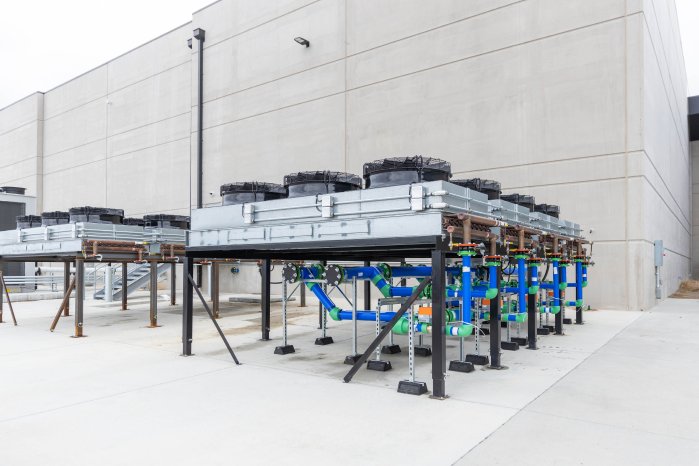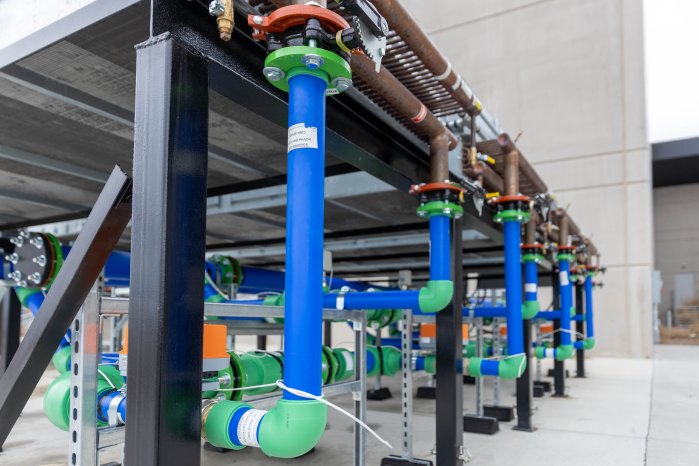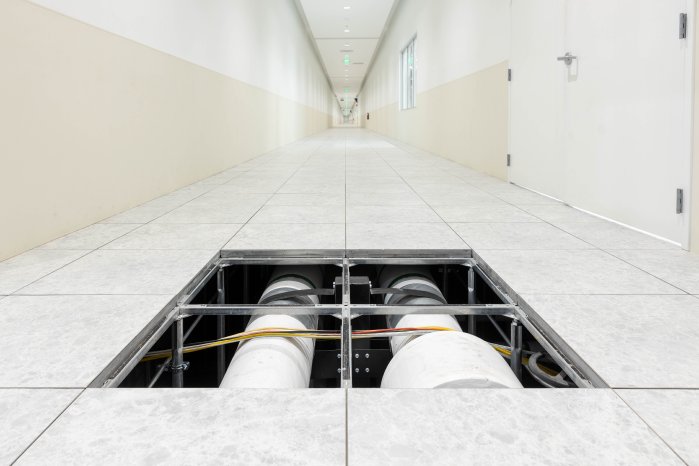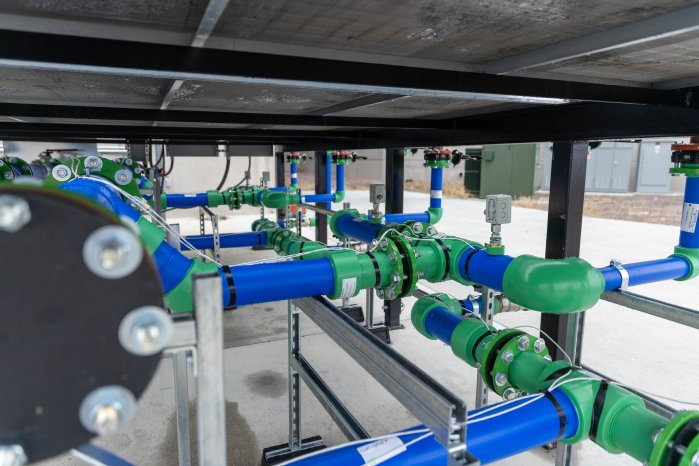Data centres are facilities that house computing technology such as computers, storage, and network components, as well as the necessary infrastructure. A hyperscale data centre is a facility that differs from usual data centres in terms of size and performance. Novva's 100-acre new building in Salt Lake City includes more than 1.5 million square feet of data centre space and provides customers with power ranging from 250 kW to 30 MW. The construction will be carried out in four phases. The first phase of construction, which includes an approximate 28,000 square metre data centre, a 120 MW substation, and an approximate 7,400 square metre office building, was completed in December 2021.
Fighting high temperatures
Reliable cooling systems are an essential part of modern data centres. Servers, storage, and network components generate a large amount of heat that must be dissipated to create a suitable temperature range for the sensitive equipment. In addition to the server room itself, switchgear and battery rooms, for example, also need to be cooled.
The Novva data centre uses a waterless cooling system that combines ambient air, heat exchanger, and refrigerant. Why waterless? For sustainability reasons. Because: cooling processes in data centres can consume 11 to 18 million litres of water per day. 30 to 40 % of the water used in this process is lost. At Novva, the waste heat from the computer servers is converted for cooling with the help of a heat exchanger. The closed system is filled with a liquid medium, which as a result requires no additional water. The entire piping of this efficient and sustainable cooling process was carried out with aquatherm products.
The decision to install aquatherm piping systems for the cooling system was made by Steven Boyce, Vice President of Infrastructure and Design at Novva. Boyce has worked in the IT and data centre industry for more than 20 years and has been involved in several new build projects during that time. A common problem: corrosion on the piping. Boyce: "I had used steel pipes in previous projects that corroded and rusted. This led to problems with sediment and pieces of rust. The efficiency of the system decreased and the pipes eventually had to be replaced." Therefore, this time his choice fell on a piping system made of the plastic polypropylene (PP-RCT): aquatherm blue. Due to its material properties, it is resistant to corrosion and incrustation and is adapted to the special needs of the cooling sector. Therefore, the cooling water flow remains unchanged over the years, which has a positive effect on the efficiency of the system and the costs. Thanks to the fusion technology, the plastic melts into a homogeneous, materially bonded unit during installation. Pipe and fitting are briefly heated using tools provided for this purpose and then joined together. This offers a high degree of safety at the otherwise critical joints. Around 1,350 metres of aquatherm blue were installed in the first Novva construction phase.
BIM helps coordinate the trades
The underfloor construction was one of the biggest challenges in this project. The floor is raised by about 1.5 metres and all the pipelines, cables, and supply lines of the facility run through the raised space. However, with the help of BIM (Building Information Modelling), the installation went smoothly.
"Using BIM helped us a lot with the installation," says Autumn Turner, technical draughts person at aquatherm. "Not only was all the HVAC and plumbing under the floor, but there were floor stands on every square foot. It took a lot of coordination to work around all these potential obstacles. BIM support and drawing creation also made it easier for the installers to find their way around the floor and navigate the space. This sped up the installation tremendously."
The aquatherm scan-to-fab service was also used on this project. This involves measuring the room on site with a laser scanner. From this a so-called point cloud is created, which enables an exact model to be made for the production of the piping system in the project. Precise fitting elements were prefabricated in the aquatherm factory, which were then transported to the construction site ready for installation. The aquatherm scan-to-fab service is currently only offered in the USA, but aquatherm can process the corresponding data from external service providers for projects worldwide. This requires RCS or RCP data in a quality of 1-3 mm.





